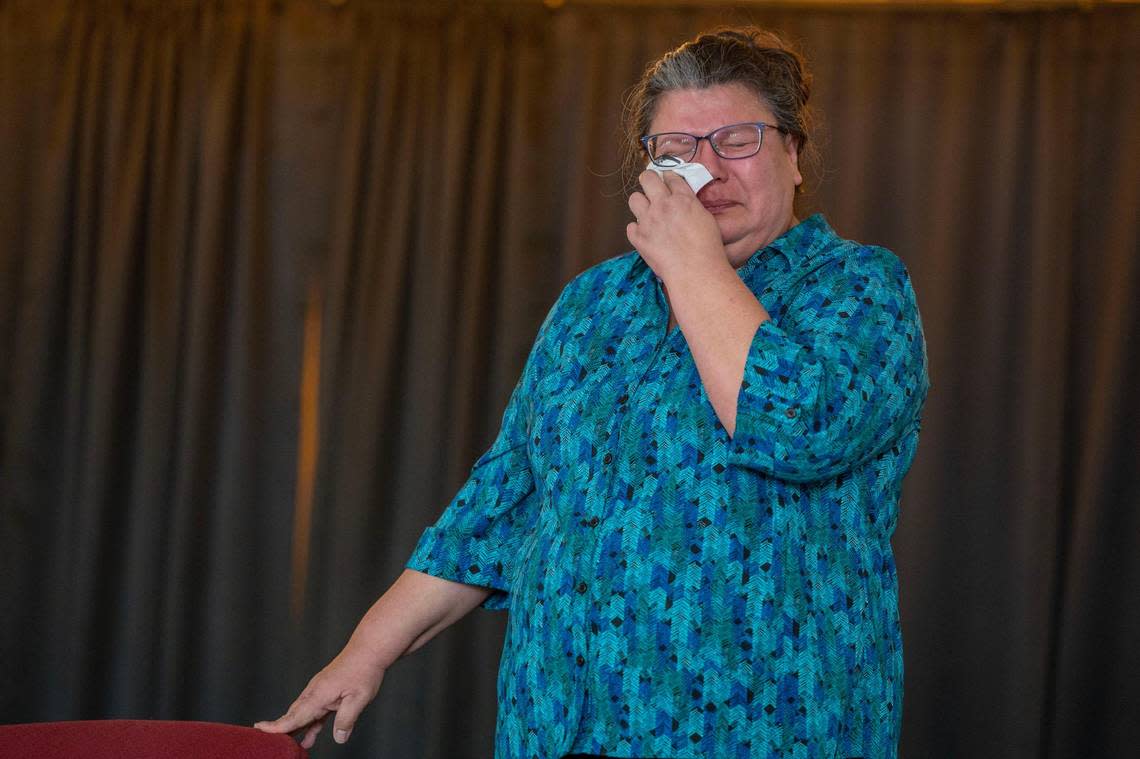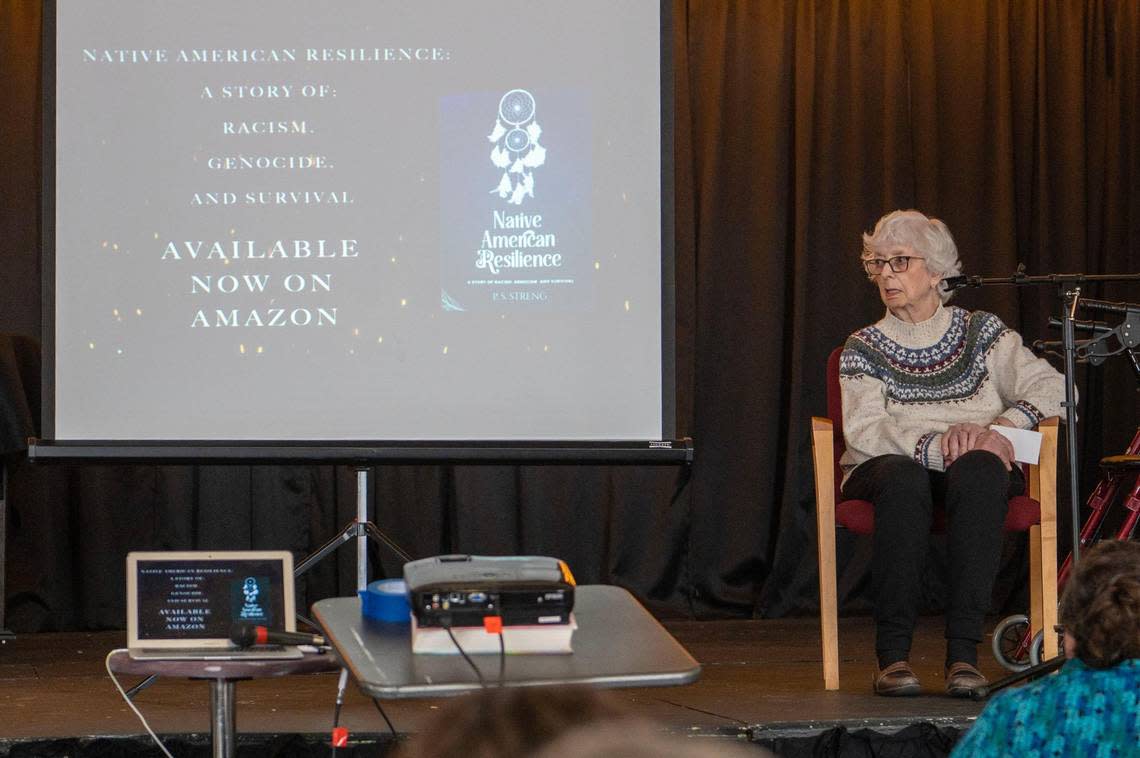‘We’re still here’: Local event highlights Native American issues and perspectives
On Saturday, Liberty’s Garrison School held a few dozen visitors, there to engage in a series of conversations addressing the ongoing struggle of Indigenous people.
The day saw a mix of heavy-hearted remembrance and urgent calls to action.
Gaylene Crouser, Hunkpapa and Oglala citizen and director of the Kansas City Indian Center, took the stage to tearfully discuss the way Indigenous people have been stripped of their culture. Society has a long way to go in its progression toward equality, she said.
“The educational system in this country is woefully inadequate when it comes to talking about Indigenous people,” Crouser said. “It’s three pages in the fourth grade and three pages of eighth grade … and then pretending like we no longer exist, but we do exist. And we’re still here.”
The event, titled “Acknowledging History, Reclaiming Culture,” was hosted by Clay Countians for Inclusion, an educational group with over 100 members. The seminar was put on in honor of Native American Heritage Month and as part of an ongoing conversation about the treatment of Indigenous people.
Speakers from the Kansas City Indian Center, as well as author Pat Streng, gave presentations. Members of other groups, such as the Thidaware Native American Garden, also attended.
Many topics were highlighted, including concern over the effect mascots such as the Kansas City Chiefs have on the treatment of Native American communities.
Jason Swartley, a program director with the Kansas City Indian Center, sported a T-shirt with the iconic Chiefs emblem on it. The word “NOPE” was plastered over it in bold, block letters.
Swartley said teams that mimic Native American culture dehumanize people rather than honor them. He said the franchise has not been working with local Native American groups to his knowledge, though he wishes it would.
“As long as there have been representations of Native people, there have been poor representations of Native people,” Swartley said. “It’s something that is harmful and has always needed to be addressed.”
Part of the Not in Our Honor Coalition, Swartley and other locals protest outside the stadium before games in hopes the team will make a change.
Swartley argued that making someone of another ethnicity a mascot would likely be considered offensive, though many organizations have claimed Native Americans as their team’s emblem. He also said Indigenous people are subject to higher levels of prejudice and violence.
Before Swartley, Crouser shared concern over the way boarding schools, such as the Shawnee Indian Mission, have created generational trauma.
“A friend of mine recently said that, if you know a Native American, they’re either a boarding school survivor, they’re a child of a boarding school survivor, or they’re a grandchild of a boarding school survivor,” she said.
While the Kansas Historical Society recently announced that the Shawnee Indian Mission grounds will be searched for children who may have been buried there, Crouser said she wishes the Shawnee tribe would’ve been consulted in the initial planning process. Now, she said, she hopes the children can finally be laid to rest.
“There are families still waiting for their kids to be honored,” Crouser said.

A flier lying on tables around the room highlighted the Truth and Healing Commission on Indian Boarding School Policies Act, a piece of legislation sponsored by Massachusetts Sen. Elizabeth Warren. The act would require diligent records searches and attempts to locate children buried by boarding schools.
Crouser spoke on the importance of the legislation, urging the group to pressure lawmakers into moving it forward. She also pointed to a second piece of paper scattered around the room, this one explaining the Indian Child Welfare Act.
That legislation is set to be challenged before the Supreme Court on Wednesday, in a case called Haaland v. Brackeen.
Crouser said the act is necessary because it prevents Native children from entering the child welfare system when familial placements are available and appropriate. She believes placing Native children in foster care rather than with their relatives strips them of their cultural identity.
Pat Streng, author of “Native American Resilience: A Story of Racism, Genocide and Survival,” shared a glimpse of her years-long research with the group.
Streng said the education system glides over the mass genocide of Native Americans in the United States, and uncovering the truth was a tumultuous journey for Streng.
“This book took me a long time to write,” she said. “I cried a lot, and I was angry a lot.”

But anger and concern weren’t the only emotions in the room on Saturday. Speakers acknowledged their pride of Indigenous people’s strength and perseverance. Swartley ended the event with a Dakota thank-you song.
“It’s a miracle that any of us still have our language — that we still have our songs,” Crouser said. “And it didn’t happen by accident. There were a lot of people who came before me … They gave their lives for this.”
